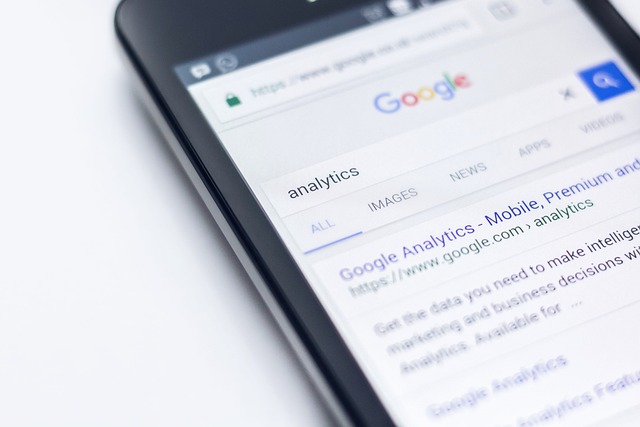In Washington D.C., where stringent telecommunications laws against spam are in place, specialized lawyers for spam text play a crucial role in protecting businesses and consumers. They guide entities through complex anti-spam legislation, ensuring compliance with consent requirements, opt-out provisions, and marketing restrictions. By mitigating the economic impact of spam texts, these legal experts foster a safer digital environment. Spam poses significant challenges, from increased operational costs for businesses to psychological impacts on residents' mental health. Specialized lawyers interpret regulations, hold spammers accountable, and safeguard consumer rights against evolving threats. A multi-pronged approach involving reporting spam, blocking software, public education, and legal counsel helps protect entities from financial losses and fosters a secure digital landscape in the District of Columbia.
“In the digital age, spam texts have emerged as a pervasive and lucrative yet detrimental force in Washington, D.C.’s economic landscape. This article delves into the multifaceted impact of these unsolicited messages from a legal and economic perspective. From the legal intricacies of regulating spam under the District’s unique framework to the financial strain on businesses and consumer behavior changes, we explore strategies to mitigate losses. For individuals seeking recourse, understanding one’s rights as spelled out by local laws is crucial, highlighting the role of a lawyer specializing in spam text cases in D.C.”
Understanding Spam Texts: A Legal Perspective in the District of Columbia

In the legal landscape of Washington, D.C., understanding and combating spam texts is a complex matter that falls under telecommunications law. The District has implemented stringent regulations to protect consumers from unwanted electronic messages, commonly known as spam. These rules are designed to uphold the privacy rights of residents while ensuring fair business practices. A lawyer specializing in spam text cases in the District of Columbia plays a vital role in interpreting and enforcing these laws. They help clients navigate the legal complexities surrounding mass texting campaigns, including consent requirements, opt-out provisions, and restrictions on marketing messages.
With the rise of digital communication, spam texts have become a pervasive issue, leading to numerous lawsuits and regulatory actions. A lawyer experienced in this field can guide businesses and individuals alike on how to stay compliant with D.C.’s anti-spam legislation. They assist in crafting legal strategies to mitigate the economic impact of spam texts on local businesses and consumers, fostering a safer and more secure digital environment within the District.
The Financial Burden on Businesses: A Case Study

The relentless influx of spam texts can significantly burden businesses operating in Washington, D.C., leading to substantial financial implications. These unsolicited messages, often originating from automated systems or third-party marketing firms, are not only an annoyance for consumers but also create additional costs for companies. One prominent impact is the strain on customer service resources as businesses grapple with managing numerous spam-related inquiries and complaints.
A case study of a local restaurant chain in the District illustrates this point. The chain reported a 30% increase in phone calls to their support lines after implementing a new marketing campaign, primarily attributed to spam texts from unknown sources. This surge required additional hiring and training to handle the influx, diverting valuable resources that could have been allocated to improving customer service or developing new business strategies. Engaging a lawyer for spam text issues in the District of Columbia can help businesses navigate legal avenues to mitigate these costs and protect their operations from such intrusions.
Consumer Behavior and Psychological Impact

The influx of spam texts in Washington, D.C., goes beyond mere annoyance; it significantly influences consumer behavior and mental health. Regular recipients of unsolicited messages often find themselves bombarded with promotions, scams, and phishing attempts daily. This constant barrage can lead to heightened stress levels and even contribute to mental health issues like anxiety and depression, particularly among individuals already vulnerable to such conditions.
Consumers in the District may change their communication habits due to spam texts. They might become more cautious about sharing personal information, leading to altered online purchasing behaviors. Moreover, a lawyer for Spam Text in the District of Columbia can attest to the rising number of cases where individuals take legal action against persistent spammers, reflecting the severe psychological impact these messages can have on residents.
Regulatory Frameworks and Their Effectiveness

The fight against spam texts has evolved significantly, with regulatory frameworks playing a crucial role in protecting consumers and maintaining digital integrity. In Washington, D.C., where technology and law intertwine, these regulations are particularly vital to manage the influx of unsolicited messages. The Can-Spam Act, a federal legislation, serves as a cornerstone in this effort, dictating how businesses can communicate with customers and what measures must be taken to prevent unwanted spam texts.
Despite its effectiveness, challenges persist. As technology advances, so do the methods employed by spammers, often finding loopholes or exploiting grey areas within these frameworks. A lawyer specializing in spam text cases in the District of Columbia is increasingly important to interpret these complex laws and ensure compliance. They play a critical role in holding offenders accountable, protecting consumer rights, and adapting legal strategies to keep pace with evolving digital landscapes.
Strategies for Mitigating Spam Text-Related Economic Losses

To mitigate spam text-related economic losses in Washington, D.C., businesses and residents can employ several strategies. First, reporting spam texts to local telecommunications authorities or a lawyer for Spam Text District of Columbia is crucial. This helps in tracking and penalizing spammers, reducing the influx of unwanted messages. Additionally, utilizing blocking software and filters can significantly curb the number of spam texts received, thereby minimizing disruption and potential financial losses.
Furthermore, educating the public about spam text trends and safe practices can empower individuals to take proactive measures. This includes being cautious when sharing personal information online and verifying the authenticity of any text before responding or providing details. By combining these efforts, Washington, D.C., can create a more robust defense against spam texts, protecting its economy and ensuring a safer digital environment for all stakeholders.






